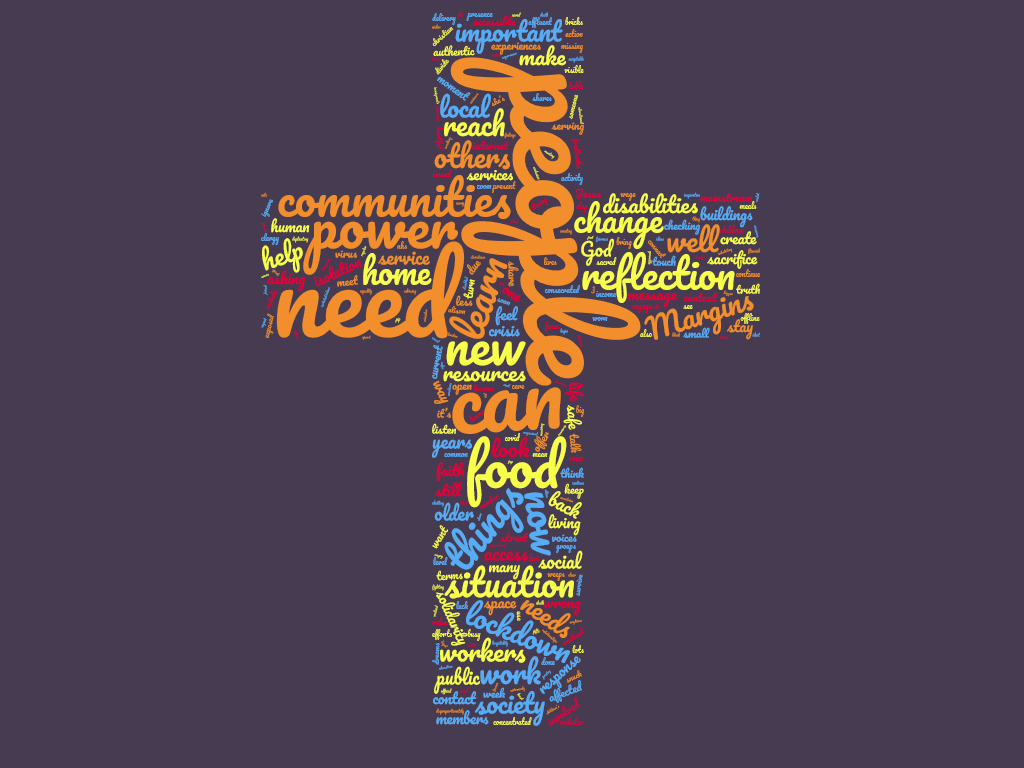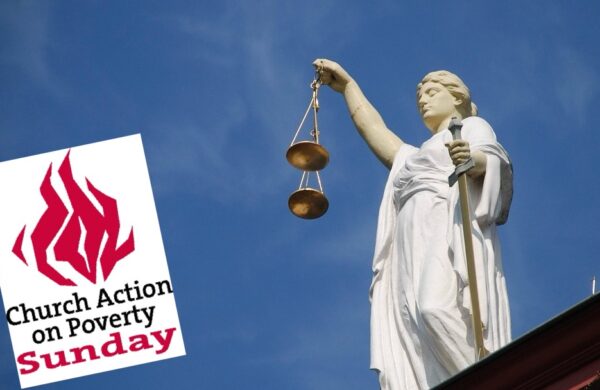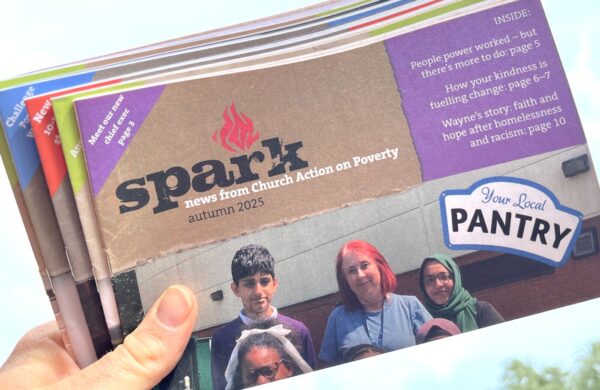Reflecting together, 21 May: inhabiting the public realm in the midst of lockdown
A report from our 21 May online discussions on what it means to be church on the margins during the pandemic.
Opening reflection by Anna Rowlands
What are we learning about what it means to be human (in all of its complexity)?
- Coronavirus brought back commonality? How we experience the situation is different, but we have a shared public life again.
- We already have being human in common, but we put other things in its place, e.g. TV, sport, etc.
- We’re also learning what we don’t have in common, the level of privilege we bring into this situation.
- How could the church misbehave well in public? To protest against unjust structures.
- How could church identify with those who have be made to feel lesser, not enough?
- The lockdown situation has intensified emotions (up and down).
- Missing human contact, being able to give someone a hug.
- We take our freedom for granted. People in prisons are locked down permanently.
- Some people feel cared for now (previously they felt forgotten). Some people are worried about being forgotten again once lockdown ends.
How do we create a genuinely shared world? (What is the Christian contribution to this?)
- We will have to live in both spheres (in person and online).
- Ideals and aspirations for going forward at the beginning of lockdown are already being lost.
- We need to stay open to a multiplicity of voices within the church.
- We must open our ears and hearts.
- Church often acts like it has all the answers, we should humble ourselves.
- We need to be alongside others beyond the walls of church. We can learn a lot from others / people on the margins.
- We still need to help people to shield, people are already forgetting this as things begin to open up.
- The origins of the word idiot – someone who thought they could survive on their own.
- Churches asking ‘how do we survive this?’ – the wrong question to be asking.
- The Church has to go public – faith in public life.
- The model of church needs to change from having a ‘gatekeeper’ to ‘priesthood for all’.
- Share our work and our journeys with each other, especially people doing the same work in different parts of the country.
- Smaller churches have seemed better connected and equipped for true engagement and connection.


Research and Information Officer
On poverty and justice: A sermon and prayer for this week
In this guest sermon, John Davies from Liverpool reflects on the parable of the unjust judge and the persistent widow Readings: 2 Timothy 3:14-4:5, Luke …
New: The Autumn 2025 Spark newsletter
Click on the cover image to download the latest issue of our SPARK newsletter, full of stories, ideas and reflections. Download newsletter News Urgent: Ask …
Prayer, care and action: how Christians should respond to injustice
Guest writer Greg Smith shares a personal story of injustice in the care system, and urges churchgoers to demand better from our society. We first …
The amazing 11-year-olds uniting a community through food
This inspiring story tells of five 11-year-olds, who have become the youngest people in the UK to launch a Pantry. Makayla, Ahmad, Retaj, Ayman and …
Make Them Pay: We’re backing the call for a just tax system
The Make Them Pay march this Saturday (September 20th) will see thousands of people demanding that the Government introduce a just tax system. We back …
Glory: How I’m striving for change and a better society
Change happens when people work together to demand it, and we love hearing inspiring stories of people doing just that. This blog showcases the experiences …
On poverty and justice: A sermon and prayer for this week
In this guest sermon, John Davies from Liverpool reflects on the parable of the unjust judge and the persistent widow …
New: The Autumn 2025 Spark newsletter
Click on the cover image to download the latest issue of our SPARK newsletter, full of stories, ideas and reflections. …
Prayer, care and action: how Christians should respond to injustice
Guest writer Greg Smith shares a personal story of injustice in the care system, and urges churchgoers to demand better …



